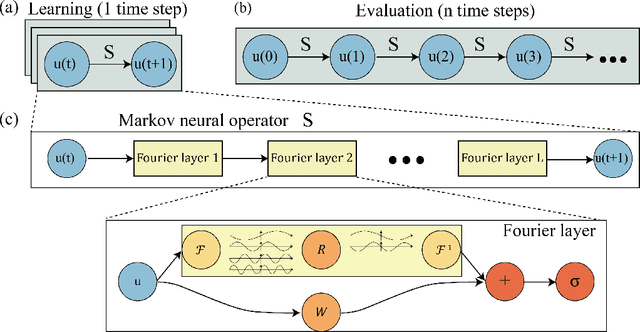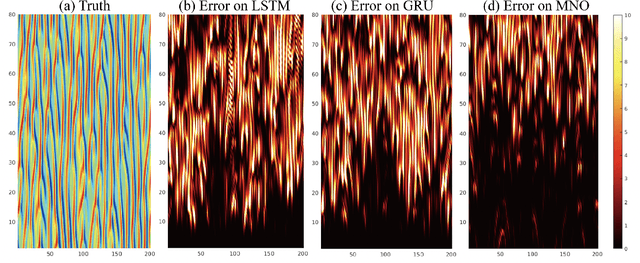Markov Neural Operators for Learning Chaotic Systems
Paper and Code
Jun 13, 2021



Chaotic systems are notoriously challenging to predict because of their instability. Small errors accumulate in the simulation of each time step, resulting in completely different trajectories. However, the trajectories of many prominent chaotic systems live in a low-dimensional subspace (attractor). If the system is Markovian, the attractor is uniquely determined by the Markov operator that maps the evolution of infinitesimal time steps. This makes it possible to predict the behavior of the chaotic system by learning the Markov operator even if we cannot predict the exact trajectory. Recently, a new framework for learning resolution-invariant solution operators for PDEs was proposed, known as neural operators. In this work, we train a Markov neural operator (MNO) with only the local one-step evolution information. We then compose the learned operator to obtain the global attractor and invariant measure. Such a Markov neural operator forms a discrete semigroup and we empirically observe that does not collapse or blow up. Experiments show neural operators are more accurate and stable compared to previous methods on chaotic systems such as the Kuramoto-Sivashinsky and Navier-Stokes equations.
 Add to Chrome
Add to Chrome Add to Firefox
Add to Firefox Add to Edge
Add to Edge